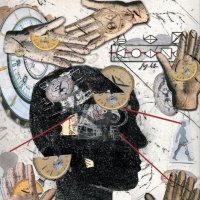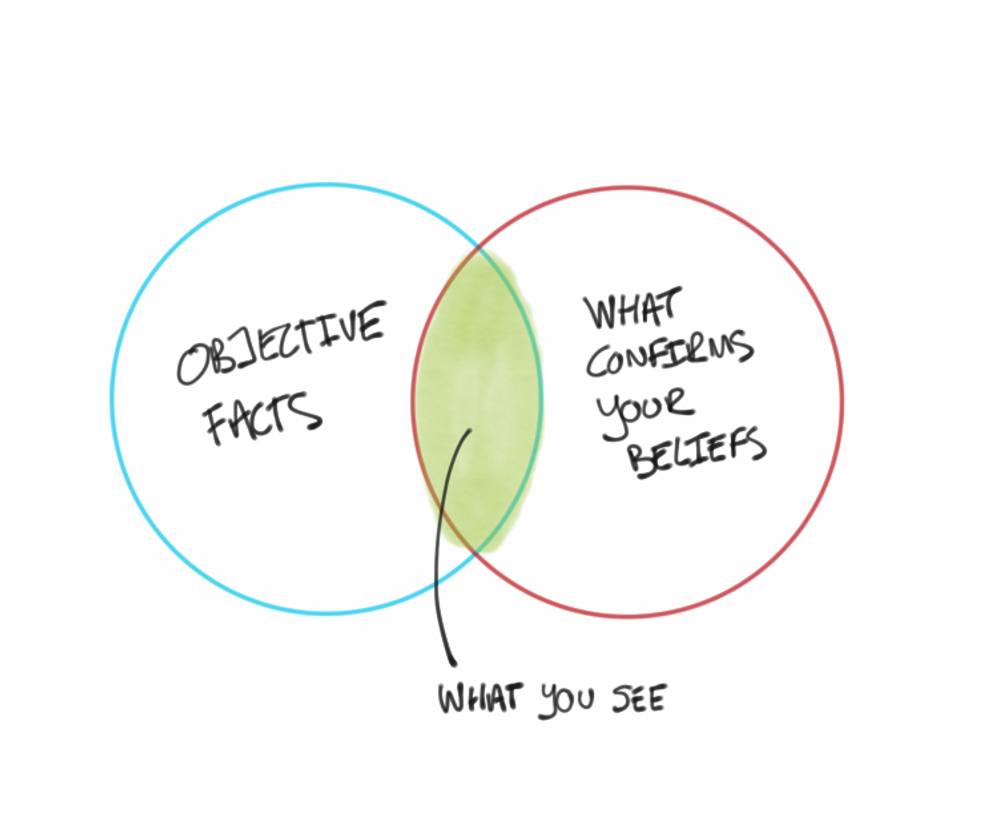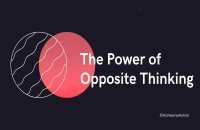Strategies For Managing Change
Articles & Resources Of Interest
Dealing With Distraction - Learning How To Live With Your "Attention Autopilot"
 Living With Your Attention Autopilot
Living With Your Attention Autopilot
The good news about your Attention Autopilot is that it will keep you safe. It is continuously scanning your immediate environment for threats.
The bad news is that it is also programmed to look out for potentially interesting things to bring to your attention.
The worse news is that it doesn't just scan your external environment it also scans your internal thought stream...
Like a curious child, your Attention Autopilot will be continuously throwing stuff at you saying: "Hey look at this!"
It's good at spotting threats but indiscriminate in what it thinks is "interesting". You can't stop it. It is what is and it does what it does.
As the adult in your relationship with your Attention Autopilot, its your responsibilty to train it to leave you alone when you're busy.
Continue reading "Dealing With Distraction - Learning How To Live With Your "Attention Autopilot""
The Time Of Your Life - Recognising Moments Of Alignment For Action
 How will you recognise your moment of alignment for action?
How will you recognise your moment of alignment for action?
In this article I want to look at our relationship with time and in the context of the two main themes of this site, firstly as a thinking skill and secondly from a mindfulness perspective.
I want to side-step the potential rabbit holes of the metaphysical and philosophical speculations that surround this subject and to focus on some practical suggestions for how you can improve your relationship with time and thus improve your health, wealth and happiness.
Here are some practical action points:
Continue reading "The Time Of Your Life - Recognising Moments Of Alignment For Action"
The Metagame Approach to Second Order Thinking - 5 Guiding Principles
 How To Position Yourself For Survival & Success In A Complex Environment
How To Position Yourself For Survival & Success In A Complex Environment
We treat life as though it is a complicated system, and our thinking skills and mental models are focused on understanding its moving parts in the belief that this will increase our control of the outcomes of our decisions and actions.
But unfortunately this is an illusion.
Why? Life is a complex system that functions within totally different parameters, so whilst we may gain a measure of control it is limited, and ultimately we set ourselves up for failure.
The metagame approach to second order thinking combines two sets of thinking skills that address the unpredictability of modern life within a complex system.
The purpose of this article is to offer some guiding principles that will position you to survive and thrive in this complex environment.
Continue reading "The Metagame Approach to Second Order Thinking - 5 Guiding Principles"
Outcome Over Optics - Long Game Outcomes Over Short-Term Ego Gains
 The Day I Learned To Focus On Outcome Over Optics
The Day I Learned To Focus On Outcome Over Optics
I have never forgotten the day I learned to focus on outcomes over optics and figured out a very simple way of saving myself several hundred thousand dollars.
At that time it was standard business practice to buy a new car every one to two years. The reason for this was all about optics, put bluntly, ego and status.
If you could afford to change your car frequently you were signalling that you were doing well and making money.
But this vanity came at a huge cost.
Here's how I had my "light bulb" moment and saved myself a fortune whilst maintaining the optics at a vastly reduced cost and optimising the outcome that I wanted with a long lasting high quality car.
Since then, I have applied this strategy to other areas of my life and have saved huge amounts of money. Here's how it works:
Continue reading "Outcome Over Optics - Long Game Outcomes Over Short-Term Ego Gains"
The ETTO Principle - Why Near Enough Can Be Good Enough
 How To Balance the Efficiency-Thoroughness Trade Off
How To Balance the Efficiency-Thoroughness Trade Off
The ETTO Principle describes the inherent trade-off between working efficiently and working thoroughly.
This trade-off is something that affects us all both in our working lives and also in our personal lives. We are all under pressure to perform and to deliver. Expectations are high in an environment of ever-increasing competition.
Here are two practical tools that you can use to manage this trade-off and that will help reduce your stress and feelings of overwhelm.
Continue reading "The ETTO Principle - Why Near Enough Can Be Good Enough"
Master The Art Of Drawing The Bow
 Focus On Process Not Outcome
Focus On Process Not Outcome
In so many areas of our lives, we focus on the outcome, not the process that we follow to achieve it.
In the western world, we are conditioned to pay less attention to how we hold and draw the bow and instead we focus on hitting the bullseye.
You can’t control where the arrow lands but you can master the art of drawing the bow.
Are you focusing on what truly matters?
Curiosity Skilled The Cat - Optimize For Interesting
 Curiosity Fuels Excellence
Curiosity Fuels Excellence
The old adage, “Curiosity killed the cat,” warns of the dangers of venturing too far into the unknown.
But what if we reimagine it not as a risk but as a gateway to developing critical thinking and problem-solving skills?
By embracing the phrase “Curiosity skilled the cat,” we shift the narrative, recognizing it as the foundation for how to think effectively.
Here's how to optimize your thinking skills by exercising your curiosity into things that interest you.
Continue reading "Curiosity Skilled The Cat - Optimize For Interesting"
Let Stillness Speak - Living Within A Complex System
 To let stlllness speak is to learn it's first major lesson: you are not your thoughts.
To let stlllness speak is to learn it's first major lesson: you are not your thoughts.
To let stillness speak is about stepping back from the constant chatter of your mind and allowing a deeper, quieter presence to communicate.
We spend our entire life imprisoned within the confines of our own thoughts. We are quite literally lost in thought.
To let stillness speak is not about some woolly, fuzzy, feel-good vibe. This is about accessing a consciousness that lies deep within you - far deeper than thought.
Continue reading "Let Stillness Speak - Living Within A Complex System"
Understanding Complex Systems Thinking - It's Not Complicated
 Understanding, and being able to work with, complexity is an important thinking skill.
Understanding, and being able to work with, complexity is an important thinking skill.
We are all working with complex systems, and we do so every day. The biggest one is life itself.
We automatically lean towards a fairly mechanistic view of life that sees life as a complicated system, and this in turns leads us to having expectations based on our perception of how things will work out.
Inevitably our expectations are frequently unfulfilled and we get frustrated and anxious.
We treat life as though it is a complicated system, whereas in reality life is a complex system, and so we set ourselves up for failure.
Continue reading "Understanding Complex Systems Thinking - It's Not Complicated"
Strategies For Managing Change - Processes That Work For People
 The Art & Science Of Avoiding Unintended Consequences
The Art & Science Of Avoiding Unintended Consequences
Strategies For Managing Change is all about a structured approach to change management that ensures that organizational changes are smoothly implemented, and that the lasting benefits of change are achieved with no unintended consequences.
This is why we refer to the art and the science of change management.
Change management is about process - but it's also about people.
Our philosophy is about "processes that work for people"!
This involves the discipline of seeing wholes - a framework for seeing interrelationships rather than things, for seeing ‘patterns of change’ rather than ‘static snapshots.
Continue reading "Strategies For Managing Change - Processes That Work For People"
Stay On The Bus - When To Keep On Going
 The Helsinki Bus Station Theory
The Helsinki Bus Station Theory
Have you ever started a new project, initiative or role with a big vision and a determination to make a difference?
Initially you were full of enthusiasm and highly motivated to break new ground. Yet after a while you get discouraged as you realise that what you thought was your own special individual approach is very similar to the efforts of many other people.
Then it gets really tough as you find that what you thought was your own unique journey is identical to the work of thousands of others.
The key to succeeding in any long term creative activity lies in understanding the operations of Helsinki’s main bus station!
How to Get What You Value by Changing What You Measure
 Give Up Control & Gain Influence To Get What You Want
Give Up Control & Gain Influence To Get What You Want
The metrics we choose to focus on can significantly shape our outcomes, sometimes in ways we don't intend.
The challenge is to make sure that you are measuring the right things and with the right metrics.
The bigger challenge is that those things that create the value are often hidden or invisible.
If you do not understand, or can not see, the things that are creating the value you will struggle to measure them.
The purpose of this article is to draw attention to this distinction and to offer some practical suggestions as to how you can identify and monitor these critical intangibles.
Continue reading "How to Get What You Value by Changing What You Measure"
How to Become A Master At Overcoming Hard Moments
 "The best in the world are not the best because they win every point. It's because they lose again and again and have learned how to deal with it."
"The best in the world are not the best because they win every point. It's because they lose again and again and have learned how to deal with it."
This quote from Roger Federer has got a lot of coverage in social media and deservedly so. I am not very interested in tennis, but I have always taken great pleasure in watching him play in major tournaments.
In common with each of the top players he had a remarkable capacity to focus on the shot in play and to put everything into that shot.
Then, regardless of the outcome of that shot, he put it behind him and played the next shot as if his life depended on it.
To become a master at overcoming hard moments when dealing with specific tasks in your working life and in your personal life you need to learn these basic skills:
Continue reading "How to Become A Master At Overcoming Hard Moments"
Drop The Story - Deal With Your Demons and Transform Your Experience
 Are you living your life from the stories you tell yourself?
Are you living your life from the stories you tell yourself?
Learning how to drop the story and deal with that voice in your head can be a game changer.
When you can do this you will have a powerful tool for breaking free from self-imposed limitations, improving performance in all areas of your life, and increasing your overall well-being.
In this article I show you how and why you have these thoughts and to give you the tools to drop the story that is holding you back and making your life a misery.
Continue reading "Drop The Story - Deal With Your Demons and Transform Your Experience"
Standing In The Gap Between No Longer And Not Yet
 Standing In The Gap In Conditions Of Imposed Change.
Standing In The Gap In Conditions Of Imposed Change.
This is about imposed change and surviving a dire and desperate situation where you are stuck in a difficult or seemingly impossible set of circumstances and it just goes on and on and there is no end in sight...
No-one would chose to live like this but millions of us do and are living in conditions of change that are imposed upon us.
We have hope, even if only a little, the flame still flickers for a brighter better future.
We stand in the gap between no longer and not yet. But how?
Continue reading "Standing In The Gap Between No Longer And Not Yet"
Preparing The Ground - For Things You Can Not See
 We plough the fields and scatter the good seed on the ground.
We plough the fields and scatter the good seed on the ground.
The phrase "preparing the ground" is a metaphor for making the necessary preparations to create the favourable conditions for something to happen or succeed.
The business as usual approach tends to focus on tangible things, things you can see, but these basic principles for preparing the ground can also be applied to things you can not see. Things such as how to:
- Thrive in unforeseen chaos, disorder and disaster.
- Position yourself to identify and exploit unseen opportunities.
- Stand in the gap between the reality you experience now and a future reality you may aspire to.
- Play the long game.
Continue reading "Preparing The Ground - For Things You Can Not See"
Easing The Weight Of Expectation
 Don’t you often feel like you are carrying the weight of the world on your back?
Don’t you often feel like you are carrying the weight of the world on your back?
Our start point is understanding that the ego has a very clear idea of how things ought to be, and its intention and expectation is inextricably linked to circumstance. It has no sense of interconnection and the bigger picture.
As a result of this we favour the visible, the embedded, the personal, the narrated, and the tangible; we scorn the abstract.
When reality doesn’t match that expectation the result is frustration and pain.
Here are some practical guidelines for easing the weight of your own expectations.
The Power Of Patience - Why You Need The World's Toughest Quality
 Nothing in the world can take the place of patience. Patience and persistence are omnipotent.
Nothing in the world can take the place of patience. Patience and persistence are omnipotent.
In everyday life, patience is often overshadowed by the desire for immediate results.
We live in an era of instant gratification, we want microwave results where waiting even a few seconds for a webpage to load can feel like an eternity.
From a bigger picture perspective and beyond the annoyance of everyday frustrations, the power of patience in difficult circumstances is that it fosters resilience in the face of adversity which allows us to weather setbacks and failures without losing sight of our objectives.
Patient people are resilient people who persist in their efforts. Here's how to develop the power of patience.
Continue reading "The Power Of Patience - Why You Need The World's Toughest Quality"
Why You Should Embrace Anomalies - The Incredible Value Of Disconfirming Evidence
 Is Your Desire To Be Right Greater Than Your Desire To Have Been Right?
Is Your Desire To Be Right Greater Than Your Desire To Have Been Right?
An anomaly is a deviation from what is expected or commonly regarded as the norm. It often appears as an unexpected observation that defies conventional wisdom or established theories.
It is frequently regarded as an abberation, a nuisance or an inconvenient interruption to a long cherished assumption.
There are two fundamental reasons why you should embrace anomalies, and they are both related to your long term health wealth and happiness:
[1] The identification of new and unrecognised opportunities.
[2] The avoidance of ignored risk and disaster.
Please read on to find how to do this...
Continue reading "Why You Should Embrace Anomalies - The Incredible Value Of Disconfirming Evidence"
Inversion - The Power Of Opposite Thinking
 How To Avoid The Unwanted Outcome.
How To Avoid The Unwanted Outcome.
The power of opposite thinking, also known as inversion, lies in its ability to stimulate creativity, enhance problem-solving, and provide a fresh perspective on challenges.
It is especially useful when launching a new initiative or attempting to resolve a difficult problem.
Instead of focusing on how to achieve a desired outcome, you consider the opposite – how to avoid the undesired outcome. Here's how to do it:
Continue reading "Inversion - The Power Of Opposite Thinking"

